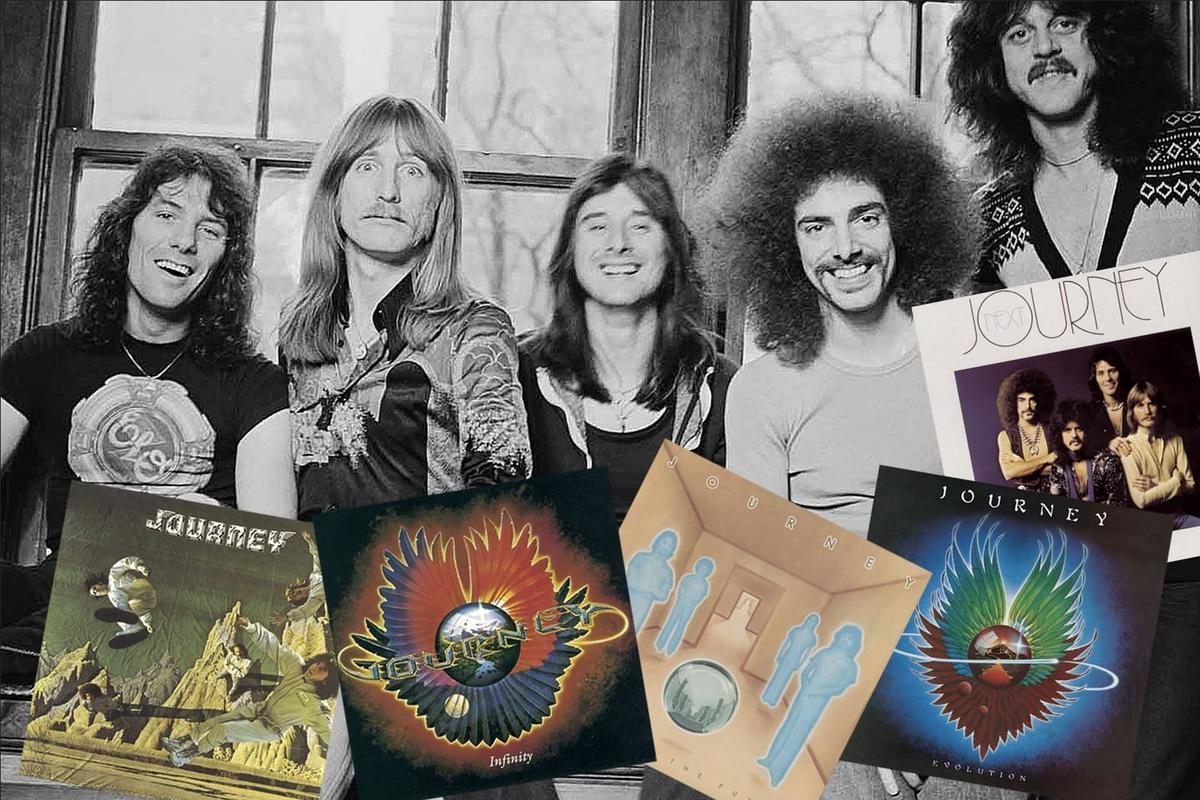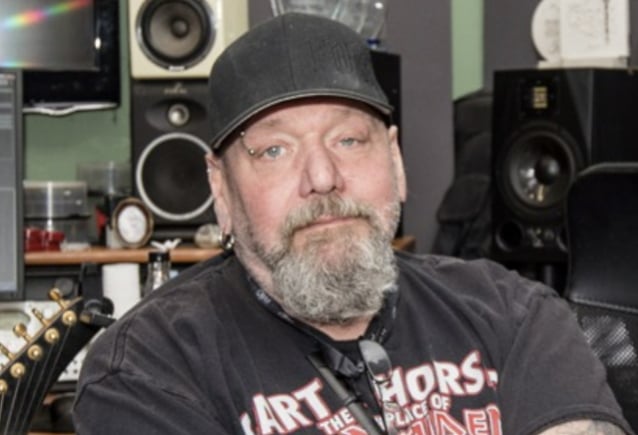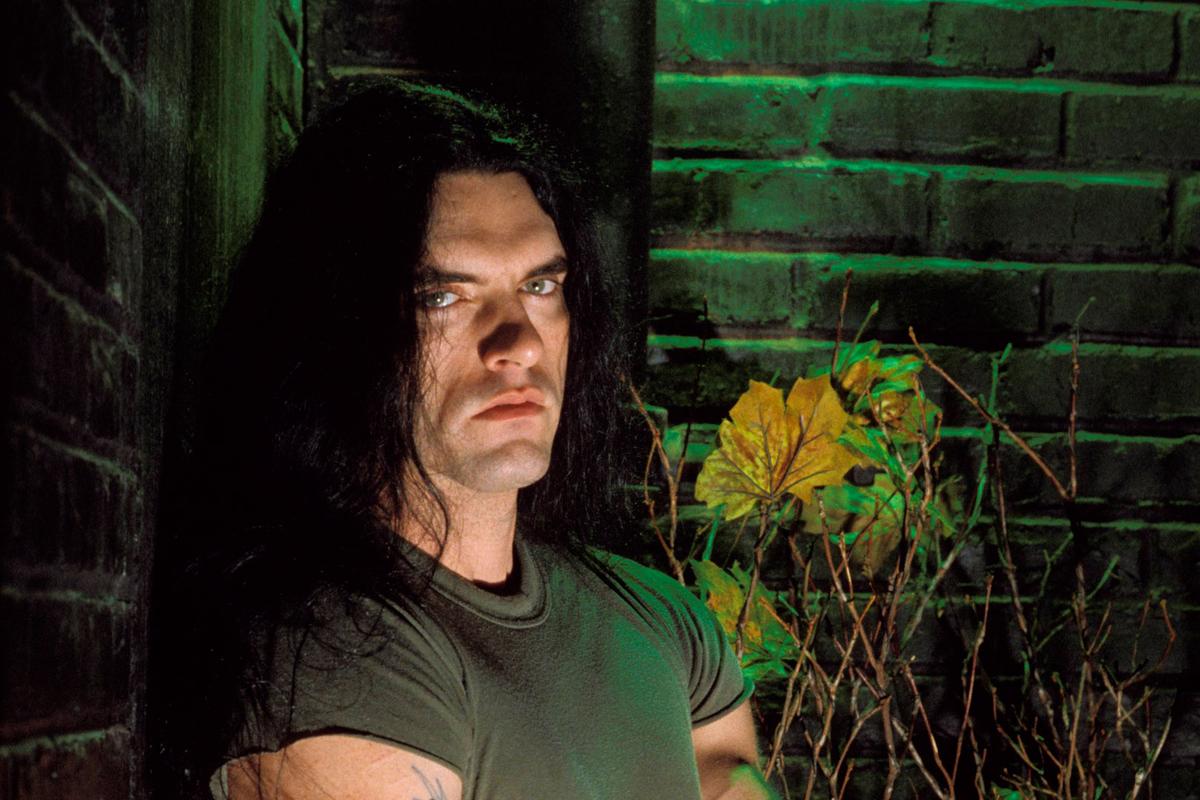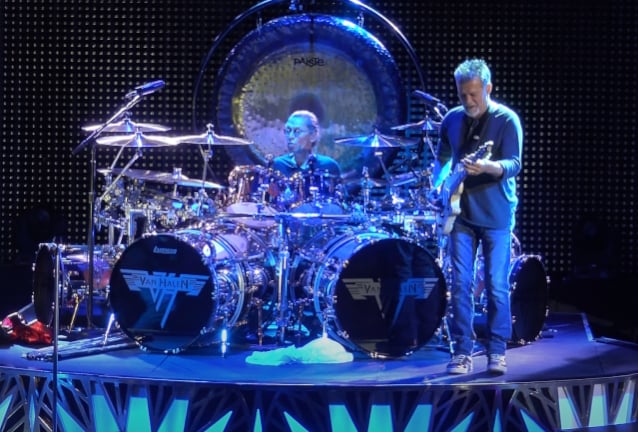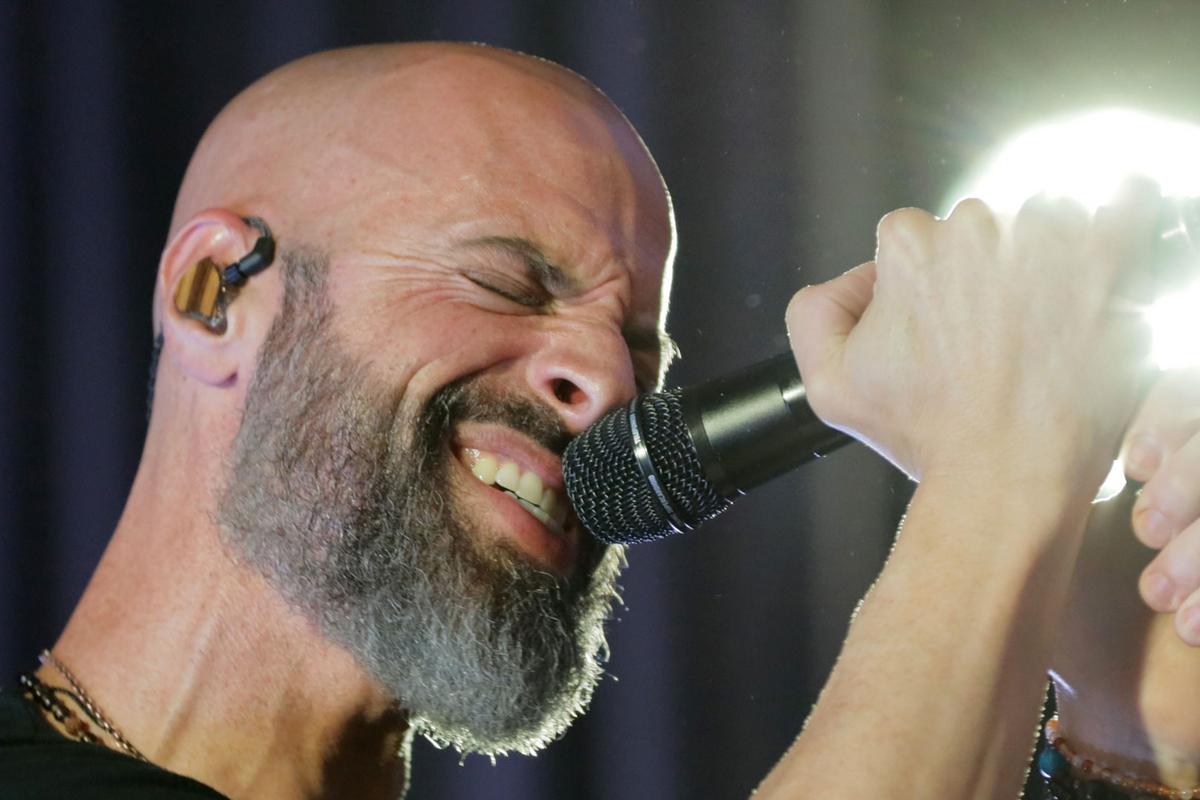Journey managed to cram two complete eras into a five-album run in the ’70s. Emerging from the ashes of Santana’s classic-era lineup, Journey began as a hard-rocking fusion-leaning four piece led by Woodstock veteran Gregg Rolie and hot-shot guitarist Neal Schon. The initial lineup was completed with fellow Bay Area stalwart Ross Valory and Aynsley Dunbar, a journeyman drummer from Liverpool best known for his work with Frank Zappa. The original group issued three albums in three years, beginning with Journey’s self-titled debut album. Look Into the Future and Next followed, but Journey was still struggling to find an audience. The highest any of those LPs could get was a No. 85 finish in 1977 with Next. Columbia Records was growing impatient. READ MORE: Top 35 Journey Videos – Together and ApartThat’s when Journey added Steve Perry as frontman – after brief flirtation with Robert Fleischman. Drummer Steve Smith then replaced Dunbar as the group began reeling off multi-platinum albums. By the end of the decade, they had unlocked their potential on radio, too. “Lovin’, Touchin’, Squeezin'” became Journey’s first-ever Top 20 single – but far from the last. They were well-positioned for the ’80s, as Journey jumped to stadium shows while selling 10 million copies of 1981’s Escape in the U.S. alone. Rolie had departed, though, having made his biggest mark during the previous decade, first without and then with Perry.Here’s a comprehensive look back as we rank all 45 Journey songs from the ’70s:No. 45. “Can Do” from ‘Infinity’ (1978)Actually, can’t.No. 44. “La Do Da” from ‘Infinity’ (1978)Steve Perry’s initial collaborations with Neal Schon were a revelation. So many of the group’s foundational songs emerged from those initial writing sessions. And then there was this.No. 43. “Lady Luck” from ‘Evolution’ (1979)Journey joined several artists who have sung tracks called “Lady Luck,” including Deep Purple, Rod Stewart and David Lee Roth. Come to think of it, none of those are really any good either.No. 42. “Karma” from ‘Next’ (1977)The last pre-Perry album ends with a grinding, unfocused rocker featuring Schon at the mic. Changes were coming.No. 41. “Topaz” from ‘Journey’ (1975)There’s no denying the level of musicianship here. It’s just not very interesting music.No. 40. “In the Morning Day” from ‘Journey’ (1975)This serviceable mid-tempo song abruptly turns into a mostly shapeless jam.No. 39. “Majestic” from ‘Evolution’ (1979)An abbreviated multi-tracked instrumental that was used as this album’s opening theme, their last with producer Roy Thomas Baker. It’s probably best remembered as the taped intro music for Journey concerts during this era.No. 38. “Next” from ‘Next’ (1977)Journey reminds you of their canny knack for achieving liftoff here, but this time it’s only window dressing for a song that doesn’t feel completed.No. 37. “City of the Angels” from ‘Evolution’ (1979)”Lights,” found later on our list of Journey ’70s Songs Ranked Worst to Best, was originally about Los Angeles, before Perry shifted its locale to his new home base in San Francisco. He later returned to the idea of paying tribute to L.A., with much poorer results.No. 36. “Winds of March” from ‘Infinity’ (1978)Credited to a crowd including Matt and Neal Schon, drive-by frontman Robert Fleischman, Gregg Rolie and Steve Perry, “Winds of March” actually sounds like a meeting of two minds: Perry, who deftly croons his way through the first two minutes, and his new bandmates – who absolutely tear through the remaining three.No. 35. “Midnight Dreamer” from ‘Look Into the Future’ (1976)The book on Journey was always that Perry arrived and they suddenly shook themselves awake to commercial considerations. One listen to “Midnight Dreamer,” and a good portion of the album it originated from, makes a powerful counter-argument. They still stretch out – dig that crazy keyboard solo! – but “Midnight Dreamer” wasn’t that far from what album-oriented radio was playing at the time.No. 34. “For You” From ‘Time3’ (1992)An important, if not entirely successful, song from the demo phase for 1978’s Infinity when they tried out Robert Fleischman as a singer. “For You” points directly to their next radio-ready direction, even if it was recorded before Perry arrived.No. 33. “In My Lonely Feeling / Conversations” from ‘Journey’ (1975)The cool interplay between Schon and quickly departed co-founding rhythm guitarist George Tickner is perhaps best showcased on this composition by Rolie and Ross Valory. Tickner was given two subsequent songwriting credits for 1976’s Look Into the Future, but was already gone by the time it was released.No. 32. “People” from ‘Next’ (1977)Journey get proggy, and it would’ve worked – a few years earlier.No. 31. “On a Saturday Nite” from ‘Look Into the Future’ (1976)Rolie opens their second album with an approachable yet still tough-minded song that confidently moves Journey more toward traditional classic rock, if not all the way over to the pop-leaning sound that later sent them to the top of the charts.No. 30. “Look Into the Future” from ‘Look Into the Future’ (1976)Everybody was into Led Zeppelin at this point, including Journey.No. 29. “She Makes Me (Feel Alright)” from ‘Look Into the Future’ (1976)”She Makes Me (Feel Alright)” builds on Rolie’s album-opening foray into more digestible song structures, though Schon’s metallic asides nearly push it into hard rock.No. 28. “Mystery Mountain” from ‘Journey’ (1975)”The way I look at the early Journey stuff is, if we played that now, we’d be out with Phish, or the [Dave] Matthews Band,” Rolie admitted in 2011. “We were a great jam band.” Exhibit A: their trippy debut album-closing “Magic Mountain,” written by Rolie and Tickner with help from Valory’s wife.No. 27. “Sweet and Simple” from ‘Evolution’ (1979)Perry brought this dream-like song with him, having written it years before while looking out over Lake Tahoe. Journey completed it with a quickly ascending final segment that matched now-patented multi-tracked vocals with Schon’s typical pyro.No. 26. “Cookie Duster” from ‘Time3’ (1992)Journey’s label asked that they replace this underrated Ross Valory instrumental with something more commercial for 1977’s Next. The album stalled at No. 85 anyway.No. 25. “Spaceman” from ‘Next’ (1977)Co-written by Aynsley Dunbar and Gregg Rolie, “Spaceman” offers Journey fans some of the most obvious initial flowerings of a pop sensibility. They placed it first on the album, and released it as a single. “Spaceman” failed to chart and Journey was ordered to rework their lineup. Robert Fleischman arrived shortly after this album’s release, toured with the band and even received co-writing credit on three songs for Journey’s following LP, but they eventually settled on Perry.No. 24. “It’s All Too Much” from ‘Look into the Future’ (1976)Journey drills down to the marrow on this throwaway piece of psychedelia, finding a seriously nasty groove beneath the Beatles’ old atmospherics.No. 23. “Nickel and Dime” from ‘Next’ (1977)This very Mahavishnu Orchestra-influenced instrumental was originally constructed in three parts. The final section was cut off, however, leaving a pair of segments with unusual Aynsley Dunbar signatures – thus the name, “Nickel and Dime.”No. 22. “I’m Gonna Leave You” from ‘Look Into the Future’ (1976)George Tickner joined Journey after a stint in the San Francisco psych-rock band Frumious Bandersnatch with Ross Valory, but wasn’t around long. He left behind this intriguingly offbeat 5/4 shuffle for fans to ponder what might have been.No. 21. “Lovin’ You Is Easy” from ‘Evolution’ (1979)This starts out as another cookie-cutter ’70s-era Journey song, then Steve Perry gets to the ear-worm title lyric and everything changes.No. 20. “Anyway” from ‘Look Into the Future’ (1976)A dark then searching rocker from Journey’s second album, featuring one of Rolie’s most desirous vocals.No. 19. “Hustler” from ‘Next’ (1977)An explosion of heavy-rocking sexuality, “Hustler” found Journey considerably toughening up its by-then-established fusion-based formula — something the group would eventually return to, but only decades later, with 2011’s muscular Eclipse.No. 18. “To Play Some Music” from ‘Journey’ (1975)The most accessible song on Journey’s self-titled debut, “To Play Some Music” provides a down-to-earth vocal vehicle for Gregg Rolie on an album dominated by epic, often spacey instrumentals.No. 17. “Patiently” from ‘Infinity’ (1978)Schon memorably gave Perry a ride home after sitting in with Azteca in San Francisco, but had no idea his passenger was a singer. Five years later, Perry finally got the chance to make an impression. He stopped by Schon’s hotel the day after a Journey show in Denver, and they wrote this song. “It was really about the determination of me wanting to get next to those players,” Perry said in the Time3 box set’s liner notes.No. 16. “I Would Find You” from ‘Next’ (1977)Neal Schon takes a rare vocal turn with Journey, and it’s his most successful.No. 15. “Kohoutek” from ‘Journey’ (1975)Named after a comet then approaching Earth’s orbit, “Kohoutek” bridges the sounds that Rolie and Schon made earlier as part of Santana with those to come from their new band. Makes sense: This track dates back to Journey’s earliest rehearsals.No. 14. “You’re on Your Own” from ‘Look Into the Future’ (1976)Their slow-fast approach gives “You’re on Your Own” a noticeably modern feel; Rolie’s heartfelt singing centers it all.No. 13. “Here We Are” from ‘Next’ (1977)Perhaps Journey’s heaviest-ever pop song. Rolie had a knack for Beatles-esque touches (see their earlier cover of George Harrison’s “It’s All Too Much”), even if it was buried in a cacophony of sound from Schon and Dunbar (see their earlier cover, etc. etc.).No. 12. “Somethin’ to Hide” from ‘Infinity’ (1978)Journey’s first attempt at a power ballad was devastatingly effective, though it arrived years before “Open Arms.” Perry’s final cry is just astonishing.No. 11. “Of a Lifetime” from ‘Journey’ (1975)Journey’s recorded output begins here, with a seven-minute jazz fusion-influenced, at times Pink Floyd-ish excursion that boldly stepped away from Rolie and Schon’s previous work in Santana. Years later, Rolie admitted: “The last thing I was to see for the rest of my life is conga drums!”No. 10. “Opened the Door” from ‘Infinity’ (1978)The last song on the first album to feature Perry, “Open the Door” begins like every gorgeous, ear-wormy love song they ever hit with a few years later — but after Perry’s initial three minutes, Rolie joins in a huge vocal bridge (“Yeah, you opened …”), and from there Schon and company are loosened from those binding conventions. Aynsley Dunbar, on his final recording date with Journey, sets a thunderous cadence, and Schon powers the song — and this career-turning album — to its quickly elevating conclusion.No. 9. “When You’re Alone (It Ain’t Easy)” from ‘Evolution’ (1979)Steve Perry chirps and coos his way through this winking tease of a song – that is, until about a third of the way through, when Schon provides a moment of release.No. 8. “Wheel in the Sky” from ‘Infinity’ (1978)He never got much credit, but Robert Fleischman played an important role in Journey. “Wheel in the Sky,” the band’s initial Billboard chart entry, was originally a poem written by Ross Valory’s wife – until Fleischman rounded it into song form. Schon added a guitar melody, and they handed it to Steve Perry after Fleischman’s ouster. The rest is, as they say, history.No. 7. “Too Late” from ‘Evolution’ (1979)A delicate, beautifully conveyed song of encouragement, “Too Late” was aimed at a friend of Perry’s who had fallen into drug abuse.No. 6. “Do You Recall” from ‘Evolution’ (1979)Maybe the perfect blending of Journey’s tough early sound and Perry’s sun-flecked sense of reminiscence. Roy Thomas Baker’s familiar stacked vocals propel the bridge to untold heights.No. 5. “Lovin’, Touchin’, Squeezin'” from ‘Evolution’ (1979)A song with a real-life storyline, “Lovin’, Touchin’, Squeezin'” came to life in another Journey jam session, then went on to become their first Top 20 hit. Rolie’s Nicky Hopkins-esque honky tonk piano rides atop a stuttering, 12/8 rhythm, building inexorably toward a cloud-bursting nah-nah-nah conclusion. Steve Smith has compared that blues shuffle to “Nothing Can Change This Love” by key Perry influence Sam Cooke. The heartbroken Perry, who’s described the writing of this song as “love justice,” actually played bass on the initial sessions. The results opened the pop-chart floodgates.No. 4. “Daydream” from ‘Evolution’ (1979)An episodic triumph, “Daydream” is defined by dreamy, Jon Anderson-esque verses, rangy guitar riffs and forward-thinking keyboard asides – very much in keeping with the prog-rock pretensions of the ’70s, though that sound had already become decidedly passe.No. 3. “Just the Same Way” from ‘Evolution’ (1979)Built off a Rolie piano riff, “Just the Same Way” once again leveraged Journey’s layered harmony vocals, already a trademark of producer Roy Thomas Baker from his previous work with Queen. Baker achieved this effect by having Perry and Rolie double and triple their parts, an incredibly time-consuming new approach that almost derailed “Anytime.” (Rolie and Schon still considered themselves jam guys at this point.) But that’s what ultimately gave this song – and Journey themselves – such a striking propulsion.No. 2. “Lights” from ‘Infinity’ (1978)Perry had an early version of this song in his back pocket when he joined Journey, and it’s a good thing. Rolie has said that the rest of the band wasn’t sold on Perry until they harmonized on “Lights” while backstage at the Swing Auditorium in San Bernardino. “It dawned on me right then,” Rolie later admitted in the Time3 notes, “that this could really be great.”No. 1. “Feeling That Way” / “Anytime” from ‘Infinity’ (1978)These paired songs took a convoluted path, as everyone worked and reworked both halves into a legacy-defining moment for Journey and their new singer. “Feeling That Way” began as a shelved Rolie track called “Velvet Curtain.” When Perry arrived, he added a gliding new chorus, and they were halfway there. Journey was also stuck on the Fleischman co-written “Anytime,” which was released as a separate No. 83-charting single but forever linked on the album and rock radio. Then Schon decided to tap the music of his childhood by adding a Beatles-like phrase, “anytime that you want me.” The then-new mixture of Perry and Rolie’s voices did the rest. “As soon as the vocals were put in, the song came alive,” Rolie remembered in 2014, laughing. “I’m glad we didn’t can it!” The results deftly fuse their earthy first era with the pop-facing second era to come. It’ll always be the perfect Journey moment.Nick DeRiso is author of the Amazon best-selling rock band bio ‘Journey: Worlds Apart,’ available now at all major bookseller websites.Journey Albums RankedSome Journey lineups were respected but low-selling, while others were bestsellers who got critically ignored. But which one was best?Gallery Credit: UCR StaffThink You Know Journey?
